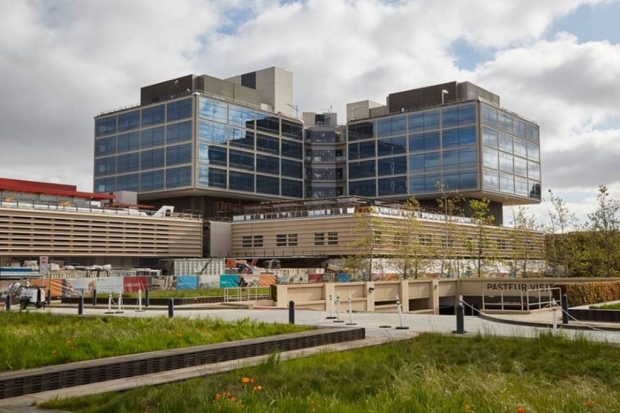As of Tuesday, anyone aged 16 or older who lives or works in Santa Clara County is eligible to get a COVID-19 vaccine — ahead of the statewide eligibility expansion set for Thursday. If you’re a student or a staff member living or working on or around campus, here’s what you need to know to get your shot.
Q: Am I eligible?
If you’re over 16 and living and/or working in Santa Clara County, yes. The county has a ‘no wrong door’ policy, which means that all providers (except for Veterans Affairs health care) will vaccinate eligible patients regardless of your health care provider or whether you have insurance.
Q: How can I get an appointment?
Vaccine appointments can fill up fast, but don’t be discouraged — county officials expect tens of thousands of appointments to open up over the next few weeks, thanks to an influx of vaccines from the federal government. You can sign up through the state health department, the county, a local health provider or pharmacies like CVS, Walgreens or Safeway. Stanford Health Care also has a vaccination site on campus, but you’ll need to create a free MyHealth account to sign up.
Q: What if there are no openings?
There are a number of platforms working to aggregate information about available appointments. Check out VaccinateCA, Vaccine Spotter, VaccineFinder, VaccineHunter.org or follow @CovidVaccineBA on Twitter, a bot that finds appointments in the Bay Area.
Q: What will I need to bring to my appointment?
It’s a good idea to have a photo ID, appointment confirmation (like an email with specific scheduling details) and an insurance card if you have one, according to the It’s My Shot website.
Q: What are the side effects?
Side effects for the different vaccines generally range from nothing at all to minor effects like low-grade fever, chills, soreness at the injection site, headache or slight fatigue, according to Stanford Health Care. In very rare cases, people might have an immediate allergic reaction, high fever, muscle or joint pain or nausea, but Stanford Health Care emphasizes that these are both uncommon and temporary. When you get the vaccine, you’ll have to wait at the site for about 15 minutes after your shot to ensure that you don’t experience a severe reaction.
Q: How do we know it’s safe?
According to the Santa Clara County Public Health Department (SCCPHD), all authorized vaccines “were tested in large clinical trials with tens of thousands of volunteers of with tens of thousands of volunteers of different ages, races and ethnicities to ensure their safety and effectiveness.” That trial information was then reviewed by the Food and Drug Administration (FDA), Centers for Disease Control and Prevention (CDC) and the Advisory Committee on Immunization Practices, who all determined the vaccines to be safe and are continuously monitoring them. Stanford Health Care also said that the vaccines “have demonstrated equivalent vaccine efficacy across all racial and ethnic backgrounds.”
Q: What’s going on with Johnson & Johnson (J&J)?
The CDC recommended that providers pause their distribution of J&J vaccines after six serious cases of blood clotting problems were reported among women within two weeks of receiving the vaccine — an issue the FDA and CDC are investigating. Because of that, both Santa Clara County and Stanford Health are pausing distribution of the vaccine. Still, more than seven million doses of the J&J vaccine have already been administered largely without issue. If you already got the J&J vaccine, experts say you should be aware of any severe headache, abdominal pain, leg pain or shortness of breath. If you’re concerned, see a doctor.
Q: After I receive the vaccine, when am I considered fully vaccinated?
You’re fully vaccinated two weeks after receiving the single dose of the J&J vaccine or the second dose for Pfizer-BioNTech and Moderna, according to the SCCPHD. While there is not enough research on exactly how protected you are after one dose of Pfizer-BioNTech or Moderna, you can still be confident that it provides some protection, according to Stanford Health Care.
More questions? Let us know here! We’ll keep updating this story with more information as it comes in.
